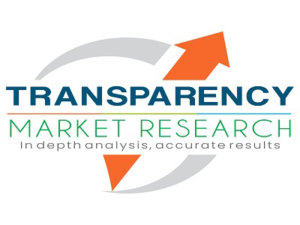Precipitated silica market forecast with a CAGR of 4 percent through 2027
Albany, NY – The global precipitated silica market was valued at US$ 3.5 Bn in 2018 and is anticipated to expand at a CAGR of ~4% during the forecast period according to Transparency Market Research. Among applications, the rubber segment held a major share of the global precipitated silica market in 2018. Increase in the demand for energy-efficient tires in the global automobile sector is anticipated to propel the segment during the forecast period. Energy-efficient tires filled with precipitated silica enable less fuel consumption with swift vehicle movement. The precipitated silica market in Europe is likely to expand at a rapid pace during the forecast period, owing to increase in expenditure on the construction of precipitated manufacturing facilities in the region.
Over the last decade, energy-efficient tires have witnessed rise in the demand, as they offer low rolling resistance, reduce CO2 emissions, and decrease fuel consumption; thereby controlling the pollution. Increase in the demand for passenger car vehicles largely in developing nations is a major factor propelling the demand for energy-efficient tires. The global automotive production has increased by 15% since 2010. Focus on reduction of vehicle weight has been a key trend in the automotive industry so as to reduce CO2 emissions. Precipitated silica is being increasingly adopted by tire manufacturers as a reinforcement filler, owing to legislations on tire labelling and stringent regulations regarding environment protection. Precipitated silica offers high reinforcing ability and enhances fuel efficiency. On the other hand, carbon black has higher rolling resistance, which results in higher consumption of fuel. Thus, precipitated silica is used as a substitute for carbon black in the global tire industry to a certain extent. Thus, rise in the demand for energy-efficient tires is expected to boost the global precipitated silica market in the near future.
Asia Pacific dominated the global precipitated silica market in 2018. Dominance of Asia Pacific can be ascribed to increase in the demand for passenger car vehicles in the region. By the end of the forecast period, Asia Pacific is projected to account for 34.17% share of the global market, in terms of revenue. China has become a major consumer and manufacturer of precipitated silica in this region, due to large production of tires in the country. The precipitated silica market in Europe is expected to witness rapid growth during the forecast period, owing to introduction of regulations on tire labelling. Furthermore, increase in the spending on construction and capacity expansion of precipitated silica facilities with the introduction of several initiatives by regulators to minimize carbon pollution, save fuel costs, and reduce the number of tire-related crashes are other few key factors anticipated to propel the market during the forecast period.
In October 2018, Evonik Industries AG opened a precipitated silica plant at a cost of US$ 120 Mn to serve the tire industry in South Carolina, the U.S. The move is intended to expand the company’s footprint in the North America market. In April 2018, Tata Chemicals Limited signed an agreement with Allied Silica Limited to acquire the latter’s precipitated silica business unit for US$ 16.83 Mn. The business transfer agreement with includes acquisition of the latter’s existing manufacturing site in Tamil Nadu (India), which produces highly dispersible silica (HDS). This acquisition would lead to building of technologically enabled, differentiated businesses of Tata Chemicals Limited.
In January 2017, Evonik Industries AG acquired the specialty additives business division of Air Products, Inc., a U.S.-based company, for US$ 3.8 Bn to expand its business in Asia and Americas.
The global precipitated silica market is dominated by large players operating across the world. Prominent players operating in the global precipitated silica market are Oryzasil Silicas Naturais, Madhu Silica Pvt. Ltd, Agile Nobel, Inc., Tata Chemicals Ltd., Oriental Silicas Corporation, Brisil, Solvay S.A., PPG Industries, W. R. Grace & Co., and Evonik Industries AG.

